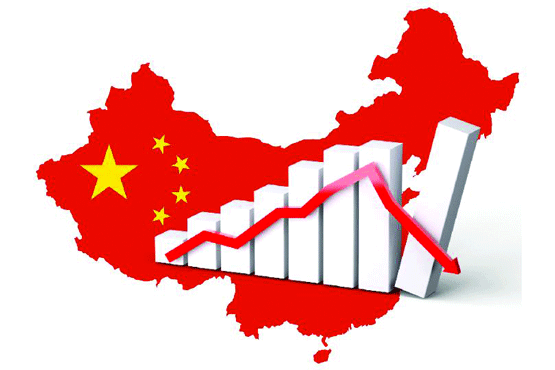China economy in dire straits
After 40-year boom
Special Correspondent: China has achieved rapid growth for more than four decades. The country is now the second largest economy in the world. But China’s economy is going through an extreme crisis due to various internal crises including the Covid pandemic.
The economic model that led to rapid growth in China is “breaking down,” the Wall Street Journal of the United States has pointed out in a report.
Citing economists, the media said, China’s economic crisis has affected the country’s overall system. The crisis is so deep that China’s economy is entering an era of slow growth.
This is because China’s current demographics are not conducive to growth and the country is increasingly estranged from the US and its allies. In such a situation, China’s foreign investment and trade may suffer.
The Wall Street Journal says that China’s economic weakness is going to be long-term, not just for a few years. “The country’s (economic) model has collapsed.”
Adam Tozi, a professor of history at Columbia University in the United States and an expert on the history of economic crises, is quoted as saying, ‘We are seeing a change in the course of economic history. This could be the most dramatic turn.”
Citing the Bank for International Settlements, the report said that in 2022, China’s public-private debt increased to more than 300 percent of the country’s total GDP.
In 2012, the country’s total debt was more than 200 percent of GDP. Many in China’s top leadership say the growth model it has been following for decades has reached its peak.
Earlier last year, at the Communist Party of China conference, President Xi Jinping strongly criticized the excessive reliance on debt for infrastructure development and expansion of economic activities.
He said, “Some people think that development means investing in various projects and increasing the amount of investment.” It is very visible that C does not want to move away from China’s old model economy.
According to data from China’s National Bureau of Statistics (NBS), China’s GDP increased by 5.5 percent in the first half of this year compared to the same period last year.
China’s GDP as of June was 59.3 trillion yuan (about $8.3 trillion). However, in the second quarter of the year (April-June), the GDP has increased at the rate of 6.3 percent, according to NBS.
Meanwhile, in order to boost the economy, China’s central bank has cut the one-year loan interest rate by 10 basis points from 3.55 percent to 3.45 percent. However, the five-year loan interest rate has remained unchanged at 4.2 percent.
Beijing has been cracking down on “initial public offerings” since the beginning of this year, fining tech companies billions of dollars for breach of trust. The government has also forced the closure of companies that have been making huge profits by investing in China’s technical education sector for so long.
Worse still, Evergrand, China’s second largest real estate developer group, recently defaulted on its $300 billion loan installments. This incident in China has alarmed the entire world economic market. Many see the possibility of yet another change in China’s economic model. Experts believe that China may not now provide financial support to many of its private companies to reshape the economy.
For decades China has depended on cheap labor and loans from state-owned banks. Companies took huge loans from banks and spent it on huge apartments, factories, bridges and other huge economic projects. And now the time has come to repay these debts. But the country has not yet developed the capacity to manage the economy through consumer spending instead of public investment. There is a huge disparity between people’s incomes and overall debt levels. As a result, China is stuck in its own debt trap.
The Chinese government is now trying to overcome the crisis without damaging the country’s real-estate business. Undoubtedly, the growth of the country will come down at a slower pace due to this effort of the government.
Besides, another concern is that the price of coal in China has skyrocketed due to the global energy crisis. Also, the portion of the working population that is going to become part of the dependent population within a few years does not have enough savings for their later life.
Rare Israeli airstrike in Beirut kills Hezbollah commander and more than a dozen others
International Desk: Israel launched a rare airstrike that killed a senior Hezbollah milita…








